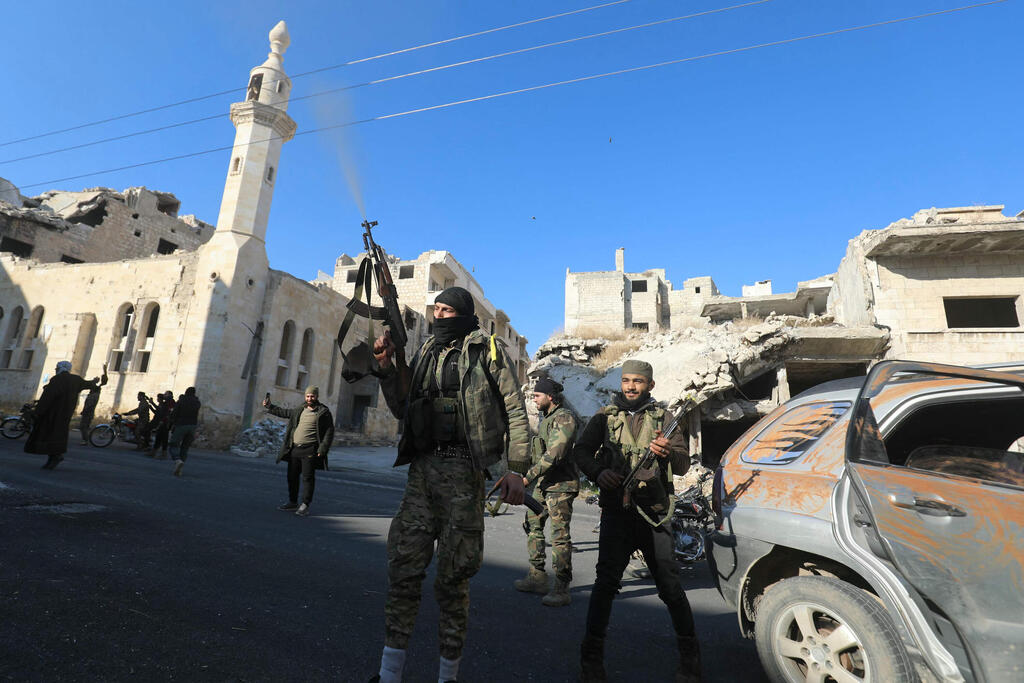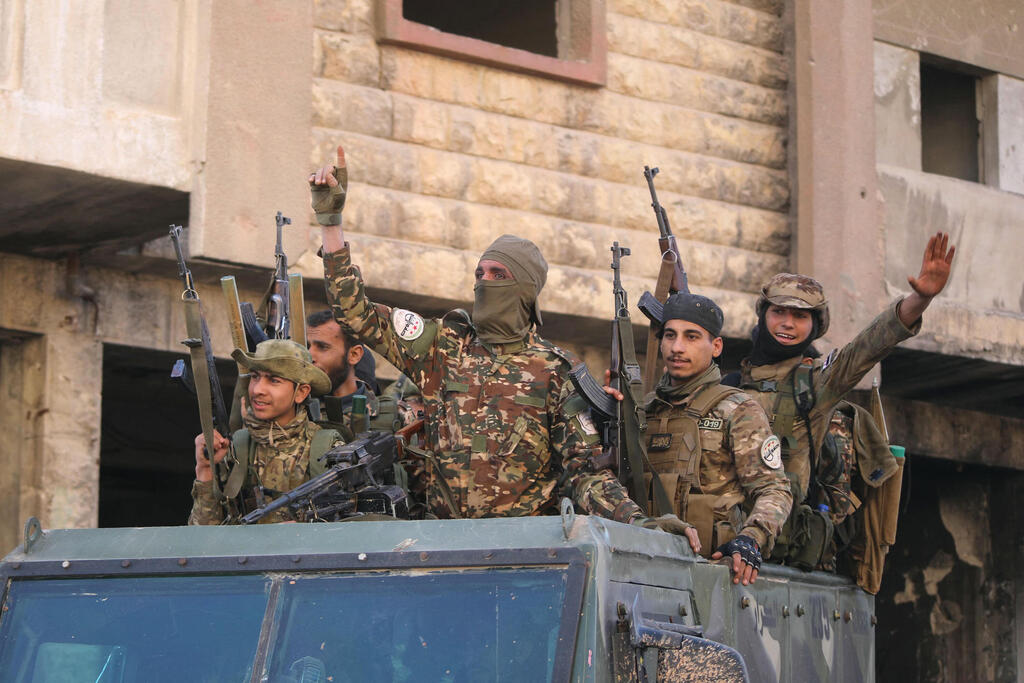The United States on Saturday said Syrian leader Bashar al-Assad lost control of Aleppo because of his reliance on Russia and Iran. Syria's "reliance on Russia and Iran," along with its refusal to move forward with a 2015 peace process outlined by the UN Security Council, "created the conditions now unfolding," National Security Council spokesman Sean Savett said in a statement.
"At the same time, the United States has nothing to do with this offensive, which is led by Hayat Tahir al-Sham (HTS), a designated terrorist organization."
Rebels in Aleppo
The Syrian army said on Saturday dozens of its soldiers had been killed in a major attack led by Islamist Hayat Tahrir al-Sham rebels who swept into the city of Aleppo, forcing the army to redeploy in the biggest challenge to President Bashar al-Assad in years.
Russia's Defense Ministry said its air force had carried out strikes on Syrian rebels in support of the country's army, Russian news agencies reported. The strikes followed what was the boldest rebel assault for years in a civil war where front lines had largely been frozen since 2020.
Hayat Tahrir al-Sham, or HTS, once known as the Nusra Front, is designated a terrorist group by the U.S., Russia, Turkey and other states. Assad is a close Moscow ally. In Washington, the White House National Security Council said it was closely monitoring the situation and had been in contact with regional capitals over the last 48 hours.
The war, which has killed hundreds of thousands of people and displaced many millions, has ground on since 2011 with no formal end, although most major fighting halted years ago after Iran and Russia helped Assad's government win control of most land and all major cities.
Aleppo had been firmly held by the government since a 2016 victory there, one of the war's major turning points, when Russian-backed Syrian forces besieged and laid waste to rebel-held eastern areas of what had been the country's largest city.
"I am a son of Aleppo, and was displaced from it eight years ago, in 2016. Thank God we just returned. It is an indescribable feeling," said Ali Jumaa, a rebel fighter, in television footage filmed inside the city.
Acknowledging the rebel advance, the Syrian army command said insurgents had entered much of Aleppo.
After the army said it was preparing a counterattack, airstrikes targeted rebel gatherings and convoys in the city, the pro-Damascus newspaper al-Watan reported. One strike caused casualties in Aleppo's Basel Square, a resident told Reuters.
Images filmed on Saturday showed people posing for photos on a toppled statue of Bassil al-Assad, the late brother of the president. Fighters zipped around the city in trucks and milled around in the streets. A man waved a Syrian opposition flag as he stood near Aleppo's historic citadel.
4 View gallery


Rebel forces with a portrait of Syrian President Assad in Aleppo
(Photo: Ghaith Alsayed / AP)
The Syrian military command said militants had attacked in large numbers and from multiple directions, prompting "our armed forces to carry out a redeployment operation aimed at strengthening the defense lines in order to absorb the attack, preserve the lives of civilians and soldiers".
The rebels also took control of Aleppo airport, according to a statement by their operations room and a security source.
Two rebel sources also said the insurgents had captured the city of Maraat al Numan in Idlib province, bringing all of that area under their control.
The fighting revives the long-simmering Syrian conflict as the wider region is roiled by wars in Gaza and Lebanon, where a truce between Israel and the Iran-backed Lebanese group Hezbollah took effect on Wednesday.
With Assad backed by Russia and Iran, and Turkey supporting some of the rebels in the northwest where it maintains troops, the offensive has brought into focus the conflict's knotted geopolitics. Fighting in the northwest had largely abated since Turkey and Russia reached a de-escalation agreement in 2020.
Russian and Turkish ministers talk
Russian Foreign Minister Sergei Lavrov held a phone call with his Turkish counterpart, Hakan Fidan, to discuss the situation in Syria, Russia's Foreign Ministry said on Saturday.
"Both sides expressed serious concerns at the dangerous development of the situation," the ministry said. They agreed it was necessary to coordinate joint actions to stabilize the situation in the country.
Turkish security officials had said on Thursday that Ankara had prevented operations that opposition groups wanted to organize, in order to avoid further tensions in the region.
Iranian Foreign Minister Abbas Araqchi told Lavrov in a phone call that the rebel attacks were part of an Israeli-U.S. plan to destabilize the region, Iranian state media said.
The Syrian Civil Defense, a rescue service operating in opposition-held parts of Syria, said in a post on X that Syrian government and Russian aircraft carried out airstrikes on residential neighborhoods in rebel-held Idlib, killing four civilians and wounding six others.
The Kurdish People's Protection Units (YPG), which spearhead the U.S.-backed Syrian Democratic Forces that control much of northeastern and eastern Syria and have long had a foothold in Aleppo, widened their control in the city as government troops left, a senior YPG source said.
Get the Ynetnews app on your smartphone: Google Play: https://bit.ly/4eJ37pE | Apple App Store: https://bit.ly/3ZL7iNv
Mustafa Abdul Jaber, a commander in the Jaish al-Izza rebel brigade, said the rebels' speedy advance had been helped by a lack of Iran-backed manpower to support the government in the broader Aleppo province.
Iran's regional allies have suffered a series of blows at the hands of Israel as the Gaza war has expanded through the Middle East.
The opposition fighters have said the campaign was in response to stepped-up strikes in recent weeks against civilians by the Russian and Syrian air forces on areas of Idlib province, and to preempt any attacks by the Syrian army.






